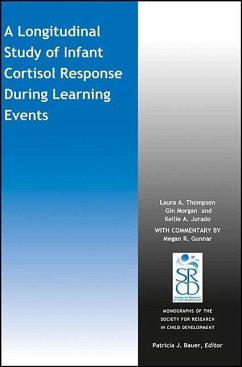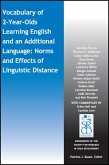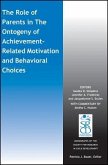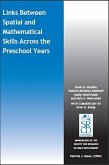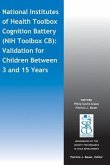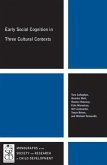Cortisol, a hormone associated with the stress response, affects adult performance on learning and memory tasks, yet whether cortisol helps or hinders performance depends on the direction of cortisol change during the task, the amount of change, and the type of task. Past studies of infants are few and confl icting regarding whether an increasing or decreasing cortisol reactivity pattern facilitates cognitive performance. Similarly, few studies have assessed whether an association exists between maternal sensitivity and learning in infancy. The present study assessed relations between maternal sensitivity, infants' cortisol response to maternal separation and a novel cognitive task, and cognitive performance at 3, 6, 8, 10, and 12 months. At each phase, infants completed different cognitive tasks, maternal and infant cortisol was measured before and after the task, and motherinfant behavior was assessed to determine maternal sensitivity. When performance on the tasks varied with cortisol response or maternal sensitivity, better performance was associated with a decreasing pattern of cortisol response (lower cortisol after the task than before) and higher levels of maternal sensitivity. Relations between cortisol response and infant cognitive performance were not, however, mediated by maternal sensitivity. Longitudinal analyses revealed no intra-individual stability in infants' cortisol response patterns over the fi rst year; however, at the group level, the decreasing cortisol response pattern became more prevalent across this age range, especially in girls. Additionally, beginning at 6 months, maternal sensitivity was stable across phases. Results are discussed in terms of their implications for the development of regulation abilities during infancy.
Hinweis: Dieser Artikel kann nur an eine deutsche Lieferadresse ausgeliefert werden.
Hinweis: Dieser Artikel kann nur an eine deutsche Lieferadresse ausgeliefert werden.

